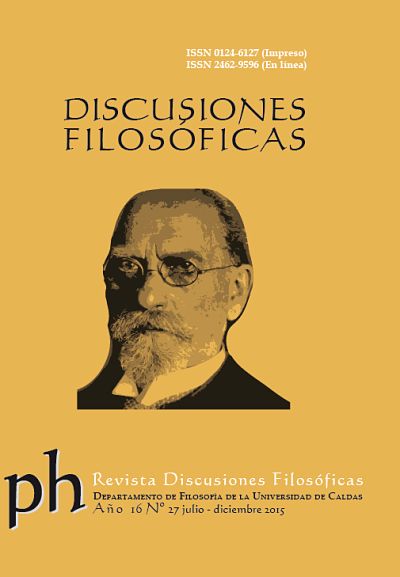Authors
Abstract
Inflationary theories of truth are prone to the scope problem. This is the problem of identifying a single explanation that could cover the various statements that most of us are willing to accept as true. This problem can also be expressed in another way: Inflationary theories of truth find it difficult to identify a single property that all true statements share for them to belong to the class of true statements. In line with this, the paper seeks to trace the source of this predicament. It will be shown that the root of the problem extends back to the early beginnings of Western philosophy itself. In the process, I will offer a distinction that can help explain why inflationary theories of truth are prone to the scope problem. Put in quite general terms, it is argued that the very approach (or methodology) that these theories employ makes them prone to the scope problem.
References
Audi, R. Epistemology: A Contemporary Introduction to the Theory of Knowledge. New York: Routledge, 1998. Print.
Barnes, J. The Presocratic Philosophers: Arguments of the Philosophers. New York: Routledge, 1982. Print.
Beardsley, M. Aesthetics from Classical Greece to the Present. Tuscaloosa: University of Alabama Press, 1975. Print.
Benson, H. “Problems with Socratic Method.” Scott, G. (Ed.). Does Socrates Have a Method? Rethinking the Elenchus in Plato’s Dialogues and Beyond. Pennsylvania: Pennsylvania State University Press, 2010. Print.
Cohen, S.M., Curd, P. and C.D.C. Reeve. Readings in Ancient Greek Philosophy: From Thales to Aristotle. Indianapolis: Hackett Publishing Co., 2005. Print.
De Vogel, C.J. Rethinking Plato and Platonism. Leiden: E. J. Brill, 1988. Print.
Fine, G. Plato on Knowledge and Forms: Selected Essays. Oxford: Oxford University Press, 2003. Print.
Graham, D. Explaining the Cosmos: The Ionian Tradition of Scientific Philosophy. New Jersey: Princeton University Press, 2006. Print.
Long, A.A. “The Scope of Early Greek Philosophy.” Long, A.A. (Ed.). The Cambridge Companion to Early Greek Philosophy. New York: Cambridge University Press, 1999. Print.
Lynch, M. “Truth and Multiple Realizability.” Australasian Journal of Philosophy. 2004: 384-408. Print.
Plato. “Parmenides.” Cooper, J.M. and D.S. Hutchinson (Eds.). Plato: The Complete Works. Indiana: Hackett Publishing Co., 1997. Print.
---. “Phaedo.” Five Greatest Dialogues of Plato: Euthyphro, Apology, Crito, Meno, Phaedo. Claremont: Coyote Canyon Press, 2009. Print.
Silverman, A.J. The Dialectic of Essence: A Study of Plato’s Metaphysics. New Jersey: Princeton University Press, 2002. Print.
Simpson, S. “Logic and Mathematics.” Rosen, S. (Ed.). The Philosopher’s Handbook. New York: Random House, 2000. Print.
Soames, S. Philosophical Essays: The Philosophical Significance of Language. New Jersey: Princeton University Press, 2009. Print.
Wittgenstein, L. Philosophical Investigations: The German Text with an English Translation. United Kingdom: Wiley-Blackwell Publishing, 2009. Print.
---. The Blue and Brown Books: Preliminary Studies for the Philosophical Investigations. United Kingdom: Wiley-Blackwell, 2002. Print.
---. Tractatus Logico-Philosophicus. London: Routledge, 2001. Print.
Wright, C. “On the Functionalization of Pluralist Approaches to Truth.” Synthese. May. 2005: 1-28. Print.

 pdf (Español (España))
pdf (Español (España))
 FLIP
FLIP




























